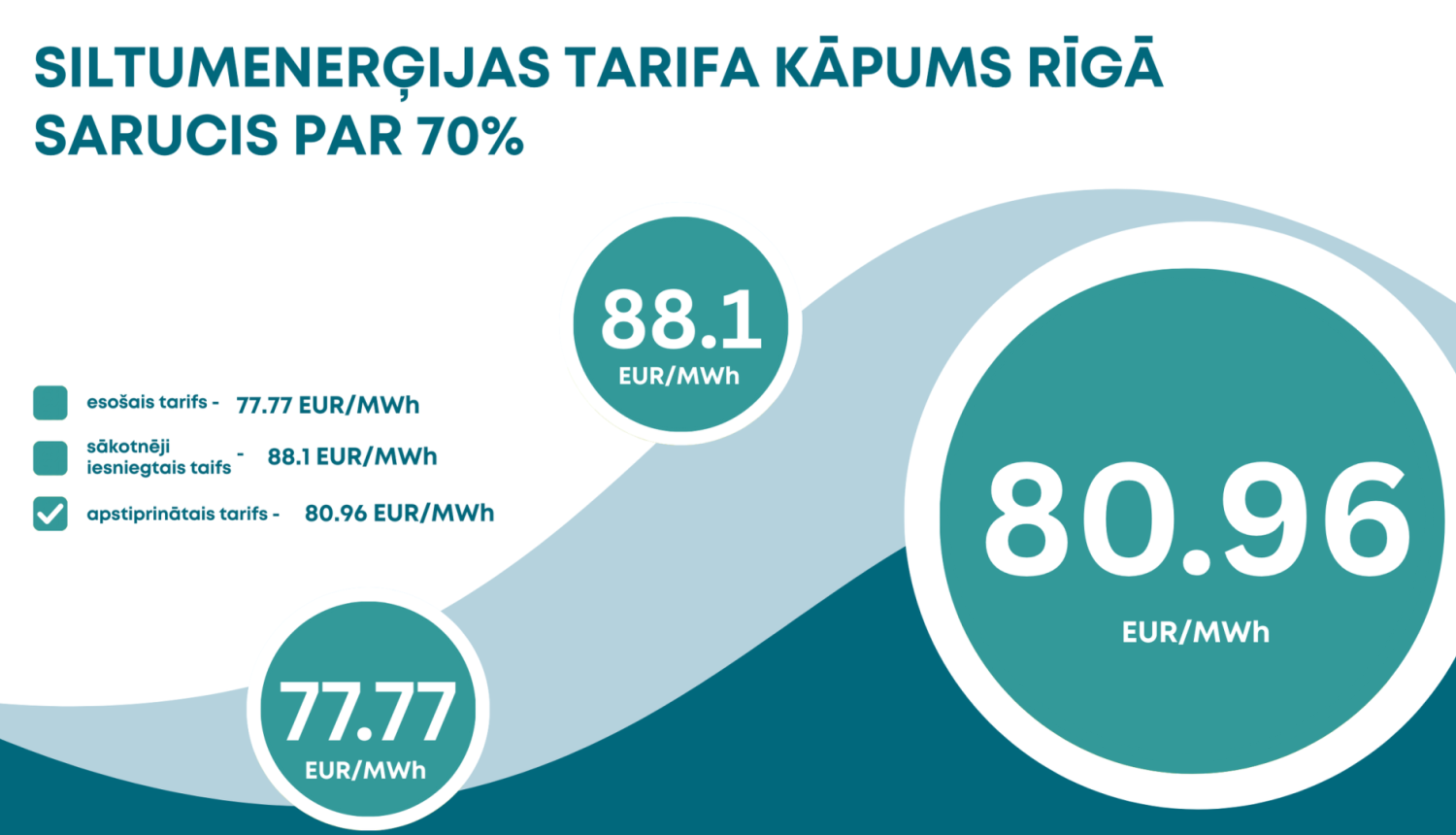On Thursday, 28 August, the increase in the heat energy tariff in Riga approved by the Public Utilities Commission (PUC) will be 70% lower than initially planned. This was made possible thanks to the active involvement of the Ministry of Economics (MoE) as a shareholder.
As a result, the heat energy tariff, without adjustment, will increase by EUR 3.19/MWh, reaching EUR 80.96/MWh, which is 4% more compared to the current tariff. Initially, however, the tariff submitted by JSC Rīgas Siltums to the PUC provided that, as of 1 October this year, the heat energy price in Riga would reach EUR 88.10/MWh, i.e., EUR 10.33/MWh more than now. The final tariff, with an adjustment for the previous period, will amount to EUR 83.01/MWh.
The MoE has been actively involved in the process of reducing the heat energy tariff, which has had a positive impact and ensured a significant reduction of the increase. The smaller-than-planned rise was achieved thanks to off-market purchases of heat energy at a price lower than the approved production tariff, as well as optimization of the heat energy market by fully transitioning to the daily market. This will ensure lower purchase prices for heat produced in biomass heat sources and maximize the use of residual heat.
“The fact that we have managed to achieve a significantly smaller increase in the heat energy tariff than initially planned proves that solutions can be found when all parties are involved. The Ministry of Economics is a shareholder not only in JSC Rīgas Siltums but also in JSC Latvenergo, which is one of the independent heat energy suppliers. Therefore, by regularly sitting down together and jointly seeking opportunities to reduce the tariff increase, such solutions have been found,” said Minister of Economics Viktors Valainis.
JSC Rīgas Siltums submitted its initial draft tariff project to the PUC on 19 June this year. The new tariff will enter into force on 1 October this year.



